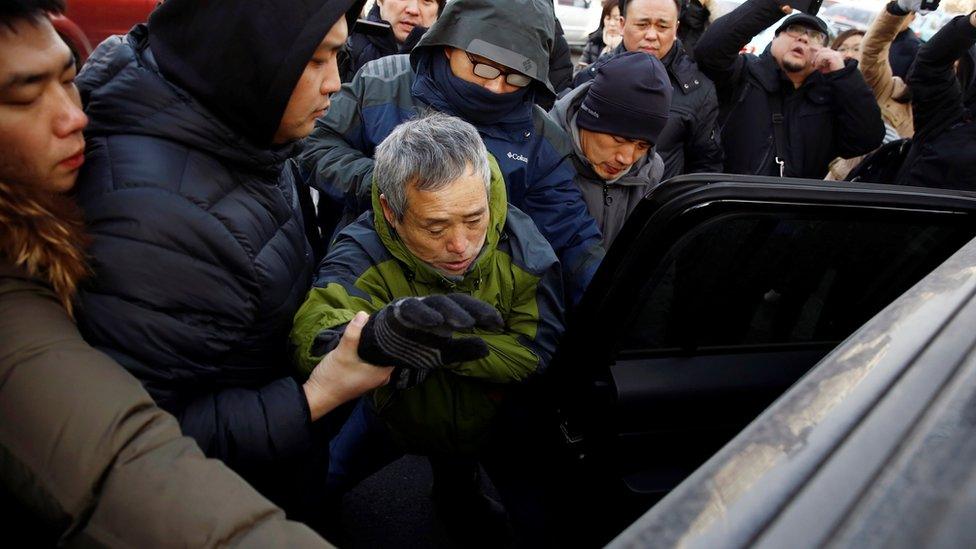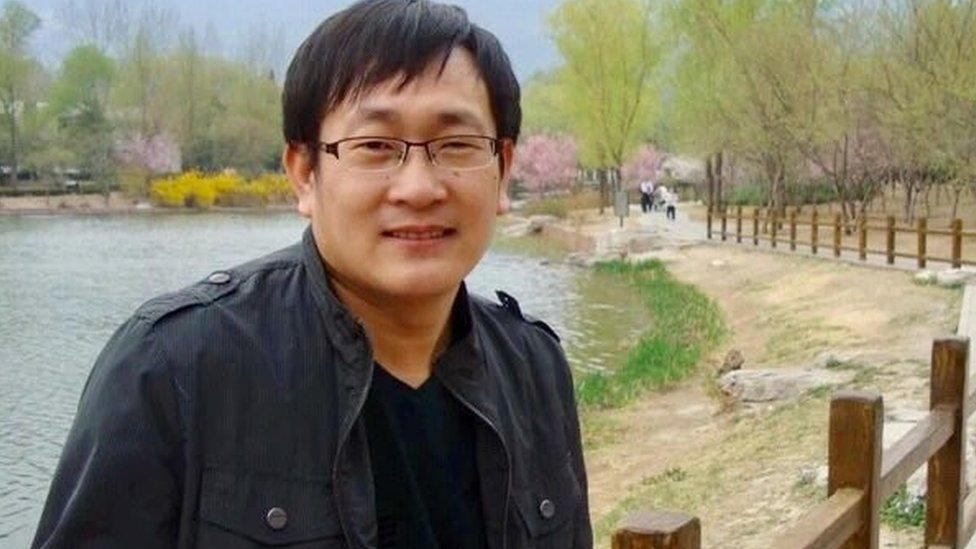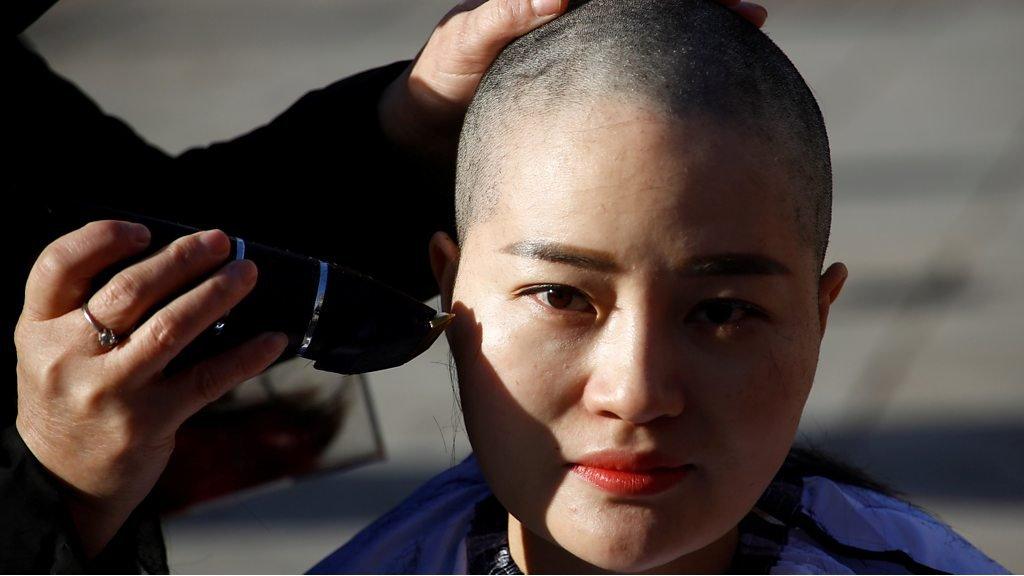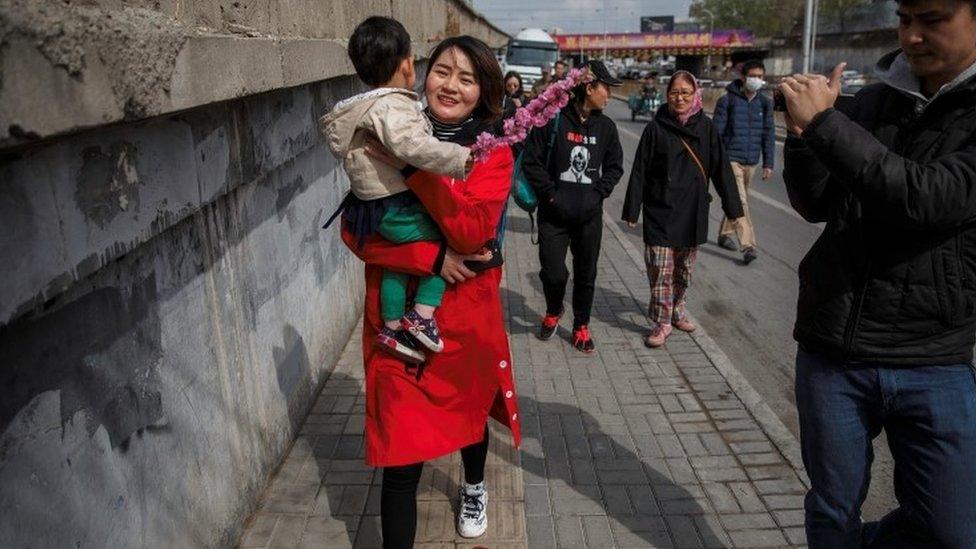Wang Quanzhang: China human rights lawyer trial begins
- Published

Some of Mr Wang's supporters gathered outside the court before being bundled into police cars
China has placed a prominent human rights lawyer on trial for subversion.
Wang Quanzhang went missing in a crackdown on hundreds of lawyers and activists in 2015, and is one of the last to be tried or released.
He defended political campaigners and followers of the banned spiritual movement Falun Gong, and worked with a Swedish human rights activist.
There is tight security outside the court, with several supporters being bundled away by police.
Mr Wang's wife Li Wenzu, who has not seen him since he disappeared in 2015, says police have surrounded her home in Beijing, preventing her from attending the trial.
Journalists and foreign diplomats have also been barred from entering the courthouse in the northern city of Tianjin.
Some activists gathered outside the court, shouting slogans or holding up signs supporting Mr Wang, before being pulled away from the scene by security officials.
Allow X content?
This article contains content provided by X. We ask for your permission before anything is loaded, as they may be using cookies and other technologies. You may want to read X’s cookie policy, external and privacy policy, external before accepting. To view this content choose ‘accept and continue’.
Mr Wang is accused of subverting state power. Court documents say he worked with Swedish activist Peter Dahlin and others to "train hostile forces".
Mr Dahlin, who worked in a legal aid organisation, was detained in China in January for three weeks, before being deported.

Wang Quanzhang was detained in August 2015 - and hasn't been seen or heard from since
On Wednesday, he said he had kept all the documents related to Mr Wang's work with his organisation, and would "release anything needed to dispel that it constitutes subverting state power".
Amnesty International researcher Doriane Lau said the scheduling of the trial, on 26 December, appeared to be a "deliberate" decision by the Chinese authorities.
"Obviously a big part of the world will be having a holiday and will not be able to respond," she told AFP.
Women shave heads over their husband's detentions in China
China's crackdown on lawyers, known as the "709" crackdown because it began on 9 July, is seen by activists as a sign of a growing intolerance of dissent under President Xi Jinping.
More than 200 were detained, with many given jail terms, suspended sentences or house arrest.
- Published18 December 2018

- Published4 April 2018

- Published22 May 2017
